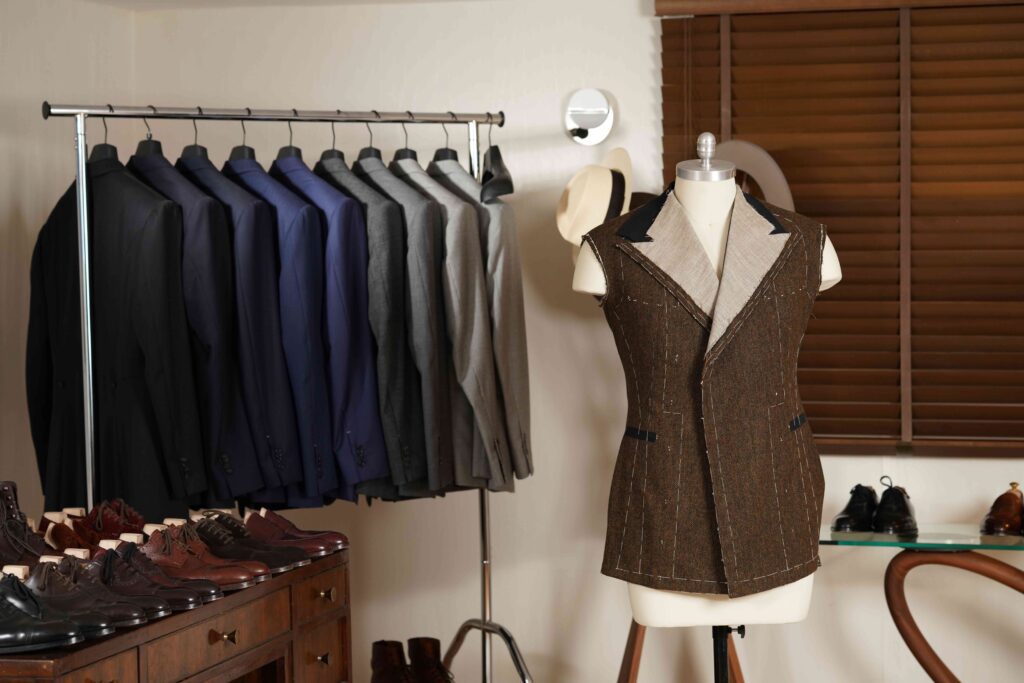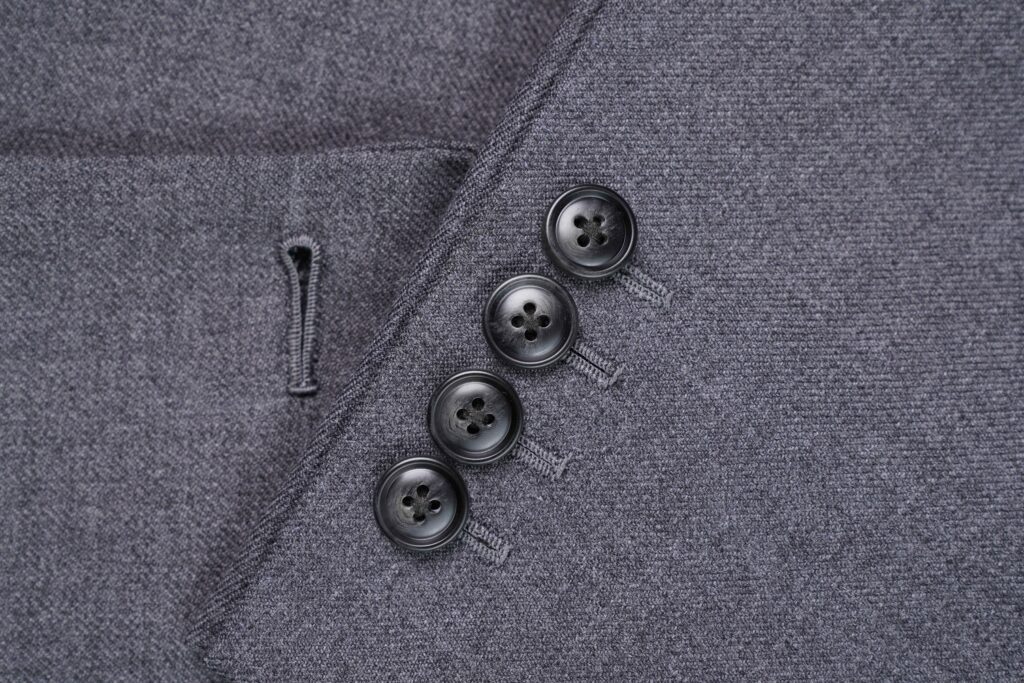Possibly no word is more flagrantly mis-used than “bespoke”, followed closely by “custom”. Its original use in the 18th century mean “spoken for”, as in “bespoken”, meaning that it had been bought and paid for by someone.
Applied to tailors and clothing, the word has traditionally been associated with personalised, hand made garments – the opposite of ready-to-wear or off-the-rack garments, which are made in a factory. Word has it that you can order “bespoke” pizzas in London, and the term has been used to describe pretty much everything that is customised to a particular customer’s wishes.
Getting back to clothing: bespoke can mean everything from selecting the number of cuff buttons on a jacket to starting with your tailor on essentially a blank page, defining everything from design, fabric, cut and proportions, all the way through to decisions about the garment’s internals. Bespoke, in this context, can also mean a high degree of hand work, but not necessarily.

So can you order a bespoke suit from a factory? Plenty of retailers would say that you can: you choose the fabric, size, measurements and details (e.g., lapel width). All these are transformed into pattern inputs, fed into the factory’s control system, and out pops a suit. Is this really bespoke? Not exactly, because if it is made in a factory, the suit probably looks like every other suit that the factory produces, within a specific product line, that is (e.g., single or double breasted).
What this means is that large men receive thin men’s suits, upscaled to larger sizes. As you may have discovered from your own experience, this never works. A larger man needs a completely different set of proportions from those that suit a thinner man (e.g., the trouser rise must be cut differently, the ratio between hips, thigh, knee and leg opening has to be recalculated, and so on). We can say confidently that “made to measure” is not bespoke.

Is a suit made on Savile Row or by any other “bespoke” tailor truly bespoke? Possibly not entirely. Every tailor works from patterns or tried and tested designs and design principles. Ask a tailor for a three button suit with very wide peaked lapels and an extra long jacket, with two side pockets instead of one on each side, and you will probably be advised that this is not the best choice. It would be bespoke, in the sense of “made to order”, of course, and might be finished entirely by hand, but a tailor might not be prepared to make it. Similarly, ask a tailor to make you a frock coat, and the tailor may tell you that he can’t – he does not have a pattern, or does not have experience making a frock coat.
As we enter the last quarter of 2023, it must be admitted that “bespoke” is used for anything from minor modifications to a pattern, to a fully original garment, hand stitched and constructed using techniques that belong to only the most expert tailors. Customers are advised, therefore, to enquire closely before buying.
From the merchant’s perspective, “bespoke” is useful because it can often be used as a way of raising prices. After all, if something is “bespoke”, it must cost more, the customer paying for originality or unique design and construction. Today, given the advantages of computer-aided design, automated equipment and the availability of information, it probably does not cost a great deal more to make something to order than it does to run off a large number of items. But, human vanity being what it is, people are likely to value that which is original to them, thus exclusive and not available to the common herd – hence their willingness to pay more.
Now to a topic closer to home: does AskOkey make bespoke clothes? And, more to the point perhaps, does its claim to bespoke tailoring justify its prices? In a word, yes. Nothing is made that is not made to order, the customer has full liberty to mandate design features, each customer has his own unique pattern, made according to his measurements, and the construction of each garment depends entirely on handwork. Each garment is thus original to the customer, and none looks like another. And, better yet, large customers are not given big versions of small mens’ clothes.
So there you have it. Bespoke tailoring is alive and well, in its traditional sense. Empowered by modernity, AskOkey is continuing a centuries-old tradition.